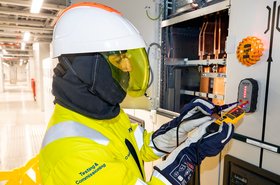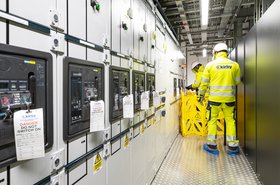The twin demands of data consumption and secure data storage are constantly growing. At this point, mid-way through 2023, the greatest challenge facing our sector is mobilizing skilled staff to deliver on these hugely ambitious projects.
From commissioning stage to sign off, whether on small data centers or the latest hyper-scale structures, a multidisciplinary team of skilled professionals must be assembled and deployed to a site that's likely away from their home countries.
At this point in time, responsible contractors must ask, ‘how do we meet these demands in a sustainable way into the future? And how do we ensure that we have the required talent pool to drive forward the construction of data centers?’
At Kirby we have substantially sized teams in Sweden and Denmark, with three to four live data center projects a year across the two countries. We have the ability to deliver these projects at a very high pace, meeting the demands of high-end clients in terms of timescales, budgets and quality.
I’ve seen firsthand the level of output required from engineering companies when it comes to delivering on hyperscale data center projects. Each data center requires a dedicated team of skilled workers, site managers, engineers and more. They are fully focused on that project for various periods within an 18 month to two-year timeframe which builds a valuable sense of continuity. This practice is also integral to creating a more established supply chain.
Investing in targeted recruitment campaigns that are specific to our needs and nurturing talent is imperative to keep up with the global demand for hyperscale data centers. While this is undoubtedly a significant challenge, I believe this can and will be achieved by constantly developing teams with the right people.
The onus is on companies to keep staff motivated. This can be done by fostering a positive culture within the workforce and encouraging a strong team ethos. It’s important to recognize talent and constantly innovate to ensure your employee value proposition is at least competitive and at best a step ahead of other market players.
People will always be the most important asset of any company and unless that’s recognized, industries will continue to lose staff or find it hard to recruit them in the first place. At Kirby we have always invested in our team, and we are proud of the global workforce that is heading up some of our most ambitious projects to date in the area of data centre construction.
To look at the positives, the construction of hyperscale data centres also presents great opportunities for a dynamic working environment. By their nature, the Nordic sites bring people from an incredibly diverse range of backgrounds together to collaborate on groundbreaking innovation. It can be a great opportunity to become immersed in a foreign culture.
Younger people, in particular, have savored the experience of working on site and tend to come away feeling equipped with invaluable skills and experience in a rapidly growing sector of engineering.
Continued investment in technology is also vital in order to drive forward energy efficient and successful hyperscale data centers. Public and private sector buy-in is imperative in order to continuously explore the best options for modularization, and to develop software platforms to best streamline this process.
Developments in pre-fabrication and off-site manufacturing have proven pivotal in terms of efficiencies and these strategies are something we are always growing and developing at Kirby, with the advancement of digital technologies and onboarding of strategies for delivery.
In terms of energy efficient role models, it’s worth looking more to the Nordic countries, and at why they are fast becoming hubs of hyperscale data centers. Sweden and Denmark have been dubbed ‘hero states’ by other countries, most notably the US, because of their ability to generate electricity through renewable energy; ever reducing their dependency on oil and gas.
These countries have seen the same inflationary pressures as the rest of Europe but they are buoyed up by their energy strategies with a large emphasis in Sweden on hydroelectric generation and wind energy in Denmark, giving them the ability to keep emissions comparatively low.
It’s an undeniable fact that the successful delivery of hyperscale data centres requires a broad and multi-faceted approach from all stakeholders, and achieving the optimum outcomes won’t happen overnight, but I believe we are headed in the right direction.
More from Kirby
-

Working back to front
When it comes to commissioning, Kirby doesn’t just ‘go by the book’, but has written a few extra chapters to ensure everything goes smoothly
-

Sponsored Delivering predictable results in unpredictable times
Kirby prides itself on its ‘no surprises approach’ to projects, backed up by thorough planning with all stakeholders from pre-construction all the way to commissioning
-
![Kirby preferred image_DSB02044[145153].jpg](https://media.datacenterdynamics.com/media/images/Kirby_preferred_image_DSB020441451.2e16d0ba.fill-280x185.jpg)
Sponsored Data center supply chain challenges: It’s good to talk
Managing complex supply chains today requires diligence and hard work to bring data center builds in successfully and on-budget, advises Kirby procurement specialist David Waldron


